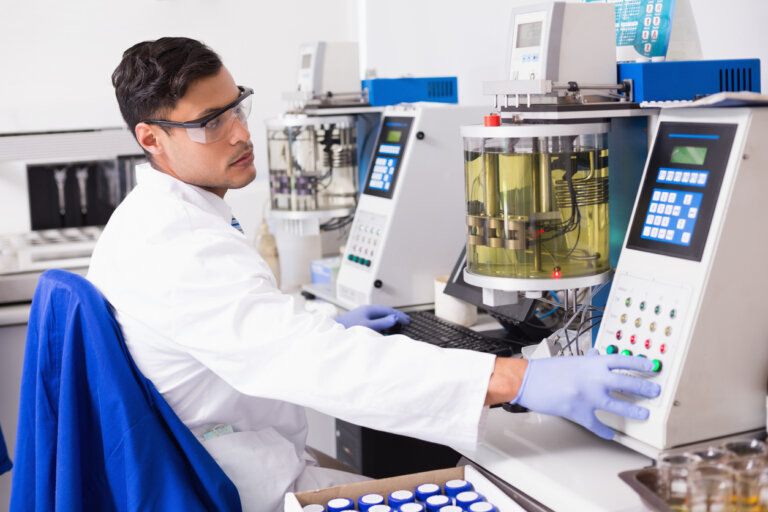In the fast-paced world of the healthcare industry, medical devices are revolutionizing patient care and transforming clinical practices. However, the key to retaining a competitive edge in this rapidly evolving landscape often hinges upon securing patents for these innovative devices. Companies can leverage medical device patents to foster innovation, encourage competition, and protect medical advancements.
Role of Medical Devices in the Healthcare Industry
Medical devices are integral to the modern healthcare landscape, serving as the cornerstone for effective diagnosis, treatment, and patient care. From basic instruments like thermometers to advanced technologies like MRI machines or pacemakers, these devices have drastically improved the accuracy of medical diagnoses and the efficiency of treatment methods. They have also transformed patient care by enabling remote monitoring, reducing hospital stays, and enhancing the quality of life for individuals with chronic conditions.
In recent times, the surge in digital health technology has seen the advent of wearable devices and health apps that allow for real-time health monitoring and data collection. Such devices are enabling proactive healthcare and empowering individuals to take control of their own health. Medical devices are not just tools of treatment, they are engines of innovation, pushing the boundaries of what’s possible in healthcare, and making medical practice more efficient, effective, and patient-centric.
Importance of Patenting Medical Devices
The patenting of medical devices is a vital step in safeguarding intellectual property rights, fostering innovation, and establishing market exclusivity. A patent provides legal protection, preventing others from making, using, or selling the patented invention for a specified period of time, typically 20 years from the filing date. This protection can be crucial in the healthcare industry, where developing a new device often involves significant investment in terms of time, resources, and research.
Patents also play an instrumental role in encouraging innovation. As the medical field continues to evolve rapidly, the promise of patent protection can spur inventors and companies to invest in the development of new, cutting-edge medical devices. This cycle of innovation is key to advancing the capabilities of healthcare providers and improving patient outcomes worldwide.
Furthermore, a medical device patent can serve as a formidable barrier to entry for competitors, granting the patent holder a period of market exclusivity. During this time, the patent holder can charge premium prices, recoup development costs, and establish a strong market presence. This exclusivity can be especially critical in the healthcare industry, where the cost of bringing a new medical device to market can be extraordinarily high due to stringent regulatory requirements.
Patents Give a Competitive Advantage
Patents serve as a critical competitive advantage in the healthcare industry, often acting as a differentiator in a crowded market space. In the first place, they provide market exclusivity, which allows a company to be the sole provider of a particular medical device for a certain period. This exclusivity can translate into substantial profit margins, particularly if the patented device addresses a significant need or improves upon existing treatment methods.
Additionally, patents can act as a deterrent for competitors. The protection offered by a patent can discourage other companies from investing in similar products, thereby reducing competition. Moreover, holding a patent enhances the company’s reputation as an innovator in the field, making it more attractive to investors, partners, and customers.
Finally, patents can be a valuable asset during negotiations or business transactions. They can be licensed, sold, or used as collateral for financing, contributing to the company’s financial stability and growth. Patents also often play a pivotal role in merger and acquisition discussions, as companies with robust patent portfolios are typically viewed as more valuable prospects.
Obtaining Advice on Medical Device Patents
Patent attorneys can play a crucial role in securing medical device patents. They assist in drafting the patent application, ensuring that it fully and accurately describes the invention while also meeting the stringent requirements of patent offices. They can also provide strategic advice, helping to identify which aspects of a medical device are most likely to be granted patent protection and therefore should be emphasized in the application. Additionally, in case of patent disputes, patent attorneys help protect rights and fend off challenges from competitors.
Patenting medical devices is an essential strategy for companies seeking to carve out a competitive advantage in the healthcare industry. Patent protection encourages continual innovation, safeguards significant investments, and facilitates market exclusivity. By understanding and leveraging the power of patents, companies can effectively navigate the competitive landscape of the healthcare industry and continue to drive medical progress.
If you have a medical device that you are interested in patenting, contact an attorney at Bold Patents and see how we can help you explore your options.

